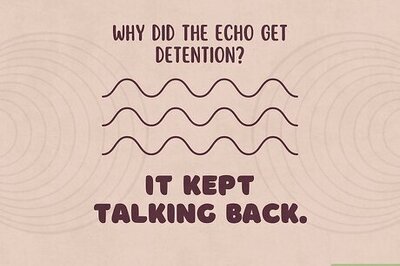
views
Brussels: External Affairs Minister Subrahmanyam Jaishankar on Monday defended the government’s controversial new citizenship law and crackdown in Jammu and Kashmir, as he came to Brussels to promote what he hopes will be closer strategic ties to the European Union.
The top diplomat was the guest of honour on Monday as EU foreign ministers met here with an eye to renewing relations and boosting trade with India.
Jaishankar defended the Citizenship Amendment Act (CAA) after lawmakers in the European Parliament drafted a resolution condemning it as "discriminatory in nature and dangerously divisive". But the non-binding resolution is yet to be passed and Jaishankar insisted the law had been misunderstood.
The CAA laws eases citizenship rules for religious minorities such as Hindus and Christians from Muslim-majority Bangladesh, Pakistan and Afghanistan. Protests have erupted in India, and concerns have been raised abroad as well.
Jaishankar said critics have misunderstood the government's policy and been taken in by the politics of a "very passionate" democratic society. He compared the CAA rules to immigration and refugee resettlement policies across Europe, pointing out that many EU countries also use national or cultural criteria.
"They created pathways to naturalisation to citizenship," he said, citing among others Germany's rule allowing ethnic Germans from eastern Europe to seek citizenship. "Now, they did it with a context and they did it with a criteria. I mean, no European country said: 'Anybody anytime, anywhere in the world can come because they feel it's nice to live in Europe'."
Without mentioning Pakistan by name, Jaishankar said some of India's neighbours have Islam as a state religion, "and there are persecuted religious minorities who came to India because many of them find people have the same faith".
He said India's new law would reduce statelessness, and pointed to the fierce debates that Europe has also had around immigration and the "political changes" these have caused.
India's push for business with EU
EU president Ursula von der Leyen's new Commission wants to give Brussels a more "geopolitical role" and as part of that hopes to host a March summit with Prime Minister Narendra Modi.
"India and the European Union share a lot of things," said Europe's high representative for foreign policy Josep Borrell, citing climate change, the digital revolution and rise of China as shared challenges.
Jaishankar, standing by Borrell, noted that the new government in India and the new commission in Brussels are "both quite fresh" and that they hoped to take relations to a "new level". He said he hoped the lunch talks would confirm the "strategic partnership."
Taken together, the EU member states are Delhi's biggest trade partner, with India's imports and exports to and from the bloc each representing about $49 billion a year.
While Europe has inked trade deals with Japan, Vietnam and Singapore, it has no formal agreement with India.
"You don't necessarily need trade deals to do trade," said Jaishankar, stressing that India's economy is driven by domestic demand. "Trade deals are useful, I mean I'm not at all denying that, but I think they are not necessarily as compelling as sometimes all of us tend to tend to think."
European business wants to win more access to markets in a country with 1.4 billion people, and Jaishankar was clear that Delhi would like closer cooperation with Europe on security and strategic policy.

















Comments
0 comment